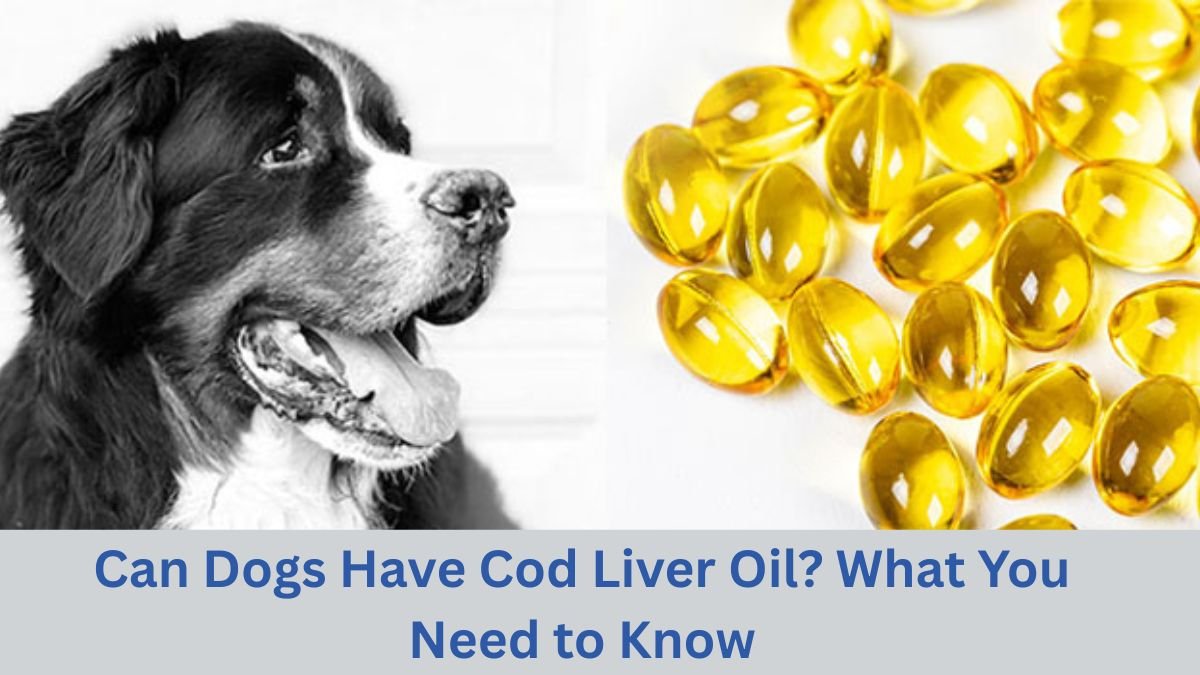People are more concerned about their pets’ health than ever before. Just like supplements for humans have become common, supplements are now being recommended for pet dogs as well. One of these is cod liver oil — a natural supplement that is rich in omega-3 fatty acids, vitamins A and D.
But the question arises: is it safe to give this oil to dogs as well? Does it really have any benefits or can it cause some side effects? Let’s understand this topic in detail so that you can be a responsible pet parent.
What is cod liver oil?
Cod liver oil, as the name suggests, is an oil extracted from the liver of cod fish (often Atlantic cod). This supplement is given to replenish vitamins A and D in the human body and improve the health of bones, skin and eyes.
But when it comes to dogs, it should be used with some caution. The main benefit of cod liver oil is the omega-3 fatty acids it contains, such as EPA (Eicosapentaenoic Acid) and DHA (Docosahexaenoic Acid), which can be beneficial for the skin, coat, joints and brain health of dogs.
Potential Benefits of Cod Liver Oil for Dogs
- Improves joint health
Cod liver oil can prove to be very useful for elderly dogs or dogs who have arthritis or joint pain. The omega-3 present in it helps reduce inflammation, which can improve movement - Makes skin and hair shiny|
If your dog has dry skin or dull hair, cod liver oil can help nourish their skin and make the coat soft and shiny.
- Strengthens the immune system
The vitamin A and vitamin D present in cod liver oil are helpful in increasing the immunity of pets. This helps the dog fight diseases better.
- Heart and brain health
DHA and EPA are essential for brain development and heart health. These elements can protect against mental function and heart problems, especially in puppies and senior dogs.
Should cod liver oil be given to every dog?
It is not necessary to give cod liver oil to every dog. It has its benefits, but if given in the wrong quantity or without the advice of a veterinarian, it can also cause harm.
Especially for dogs whose diet is already rich in vitamins A and D, additional supplements can cause vitamin toxicity.
Potential side effects and precautions
- Excess vitamin A
Cod liver oil is high in vitamin A. If given in high amounts for a long time, it can weaken the dog’s bones, put pressure on the liver and cause lethargy. - Digestive problems
Some dogs may have diarrhea, vomiting or gas problems after taking cod liver oil. It should be given in small quantities initially and attention should be paid to the stomach reaction. - Reaction with medication
If your dog is on any other medication (such as blood thinners, steroids, etc.), cod liver oil may alter their effect. So be sure to consult a veterinarian.
How much is safe to give?
The right amount of cod liver oil depends on the dog’s weight, age, health condition and current diet. Generally:
- Small dogs (up to 10 kg) – ¼ to ½ teaspoon daily
- Medium-sized dogs (10–25 kg) – ½ to 1 teaspoon daily
- Large dogs (more than 25 kg) – 1 to 2 teaspoons daily
However, this is only a general guideline. It is better to consult your vet.
Which type of cod liver oil to choose?
Always choose a high-quality, vet-approved cod liver oil for dogs. Oils made for humans may contain flavorings or chemicals that are not safe for pets.
Make sure the product has no artificial preservatives or additives and is third-party tested.
How to give cod liver oil?
You can give cod liver oil to dogs by following these steps:
- Mix it in his food
- If it is in capsule form, open it and mix it in the food
- Some dogs may even lick it straight if they like the taste
- Increase the amount slowly at first and monitor his stomach and behavior closely.
Know the alternatives: Are there other options?
If you don’t want to give cod liver oil or are having problems with it, you can choose other omega-3 sources:
- Salmon Oil
- Fish Oil blends
- Krill Oil
- Flaxseed Oil – but it contains less DHA than animals need.
Conclusion
Cod liver oil can be a useful and nutritious supplement for dogs, provided it is given in the right amount and with the advice of a veterinarian. It helps strengthen skin, hair, joints, brain and immune system.
However, it is very important to avoid overdose as excess vitamins A and D can cause serious harm. If you are serious about your beloved dog’s health, be sure to consult a doctor before making any supplement a part of the regular diet.
